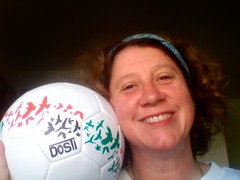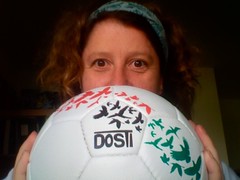 Some of the most frequently asked questions (FAQs) to online forums for community-based organizations (CBOs) in developing countries, whatever the subject, are regarding funding.
Some of the most frequently asked questions (FAQs) to online forums for community-based organizations (CBOs) in developing countries, whatever the subject, are regarding funding.
In addition, the first impulse of many small non-governmental organizations (NGOs) seeking funding is to request the contact information for possible funders, and once they find the name of any company they think gives grants to NGOs, these NGOs often write immediately to the company with a desperate please for funds. This approach often harms the NGO, rather than garnering any support at all. Not only do these please rarely attract funding, they can turn funding sources against the NGO altogether.
After seeing these questions and messages again and again over several years (I’ve been on the Internet since about 1994) I drafted a list of basic tips for fund-raising for small NGOs – it was 15 pages long. Now, years later, it has evolved into 31 pages. It is a PDF file.
The document is meant to provide very basic guidelines for small NGOs in the developing world regarding fund-raising and adhering to the basic principles of good governance, and to point to other resources. By small NGOs, I mean organizations that may have only one paid staff member, or are run entirely by volunteers; and may or may not have official recognition by the government. These organizations are extremely limited in their resources, and are often in unstable environments and/or serving profoundly poor populations. Certainly medium-sized NGOs could use it as well – organizations that may have two or three paid staff members.
Please note that this document is NOT written for nonprofits serving the “developed” world — organizations serving communities in North America, Western Europe, Australia, New Zealand or Japan would probably not find this document particularly helpful, as it has been prepared to make recommendations relevant for nonprofits serving in a developing country.
This document is also not for organizations that send volunteers into developing countries to work. This document will not help you fund the trips of such volunteers. If you are such a volunteer-sending organization, see funding your volunteering trip abroad and fund raising for a cause or organization for more helpful information.
THIS DOCUMENT IS NOT A LIST OF FUNDERS/DONORS.
Let me repeat that: THIS DOCUMENT IS NOT A LIST OF FUNDERS/DONORS.
It is, instead, a set of guidelines on how to prepare an organization in a developing country to be attractive to donors, how to search for potential donors and how to approach such potential donors.
The document includes:
- A list of activities an NGO should NEVER do regarding fund-raising
(& how I know if an NGO has actually read this document!) - How to network among various sectors in your country and establish credibility to insure fund-raising success
- The absolute essential preparations to solicit donations, both locally and from international NGOs working in your geographic area
- Establishing credibility and a reputation of integrity, transparency and accountability
- How to find donors that would be interested in your NGO and how to make contact with them
- A warning about fund-raising scams
- Online resources for detailed tips on writing funding proposals
- Suggestions regarding volunteers in other countries fund-raising on your NGO’s behalf (new chapter added October 2011)
- Online resources for further information
Once you have received this document, please do NOT distribute the document via a web site or on an online discussion group without my written permission. I frequently update the document, and want to ensure people are getting the most recent version.
Here is the web page for more regarding: Basic Fund-Raising for Small NGOs/Civil Societ in the Developing World, including how to access the document.



 Kudos to the
Kudos to the